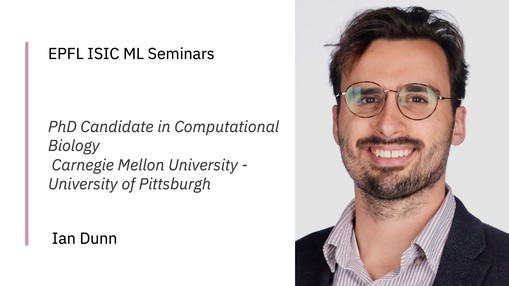AI in chemistry and beyond: Molecular Generative Models: Diffusion for 3D Geometry Generation
02-05-202302-05-2023With: Minkai Xu is a Ph.D. student in the Computer Science Department at Stanford University. Previously, he received his M.Sc degree from Mila and B.E. from Shanghai Jiaotong University. His research lies in probabilistic models, geometric representation learning, and ML for scientific discovery. He has published several influential papers on the above topics in top machine learning conferences (e.g., ICML, NeurIPS, ICLR, AAAI, and AAMAS) including the first diffusion models for molecular structure generation, which has been widely adopted in various drug and protein design problems. His research is generously supported by Sequoia Capital Stanford Graduate Fellowship.
Online: https://epfl.zoom.us/j/68447908297?pwd=OU5JUGJUSUhZc0ZNYjQ2WENvYlNRdz09
Category: Conferences – Seminars



















